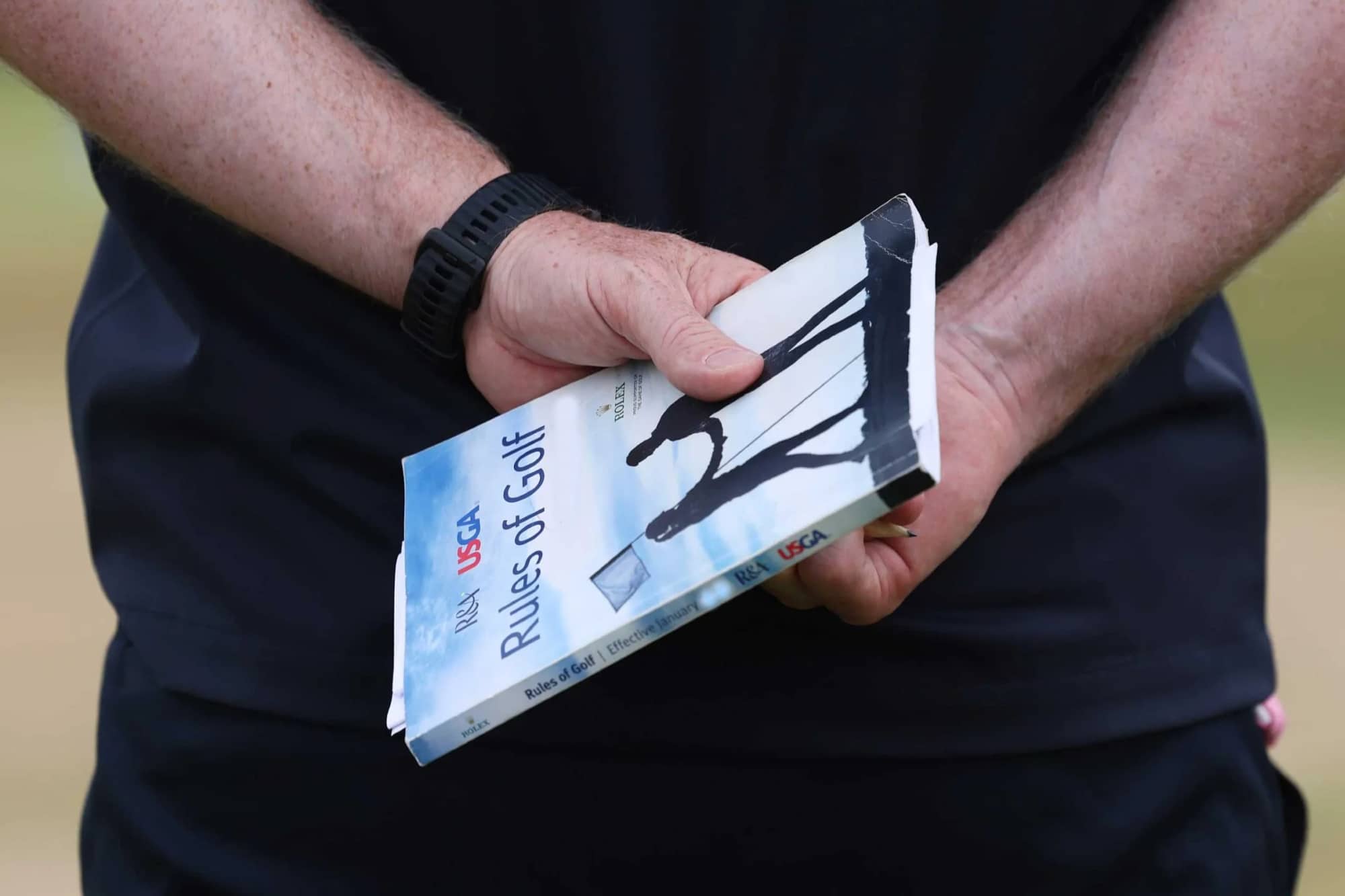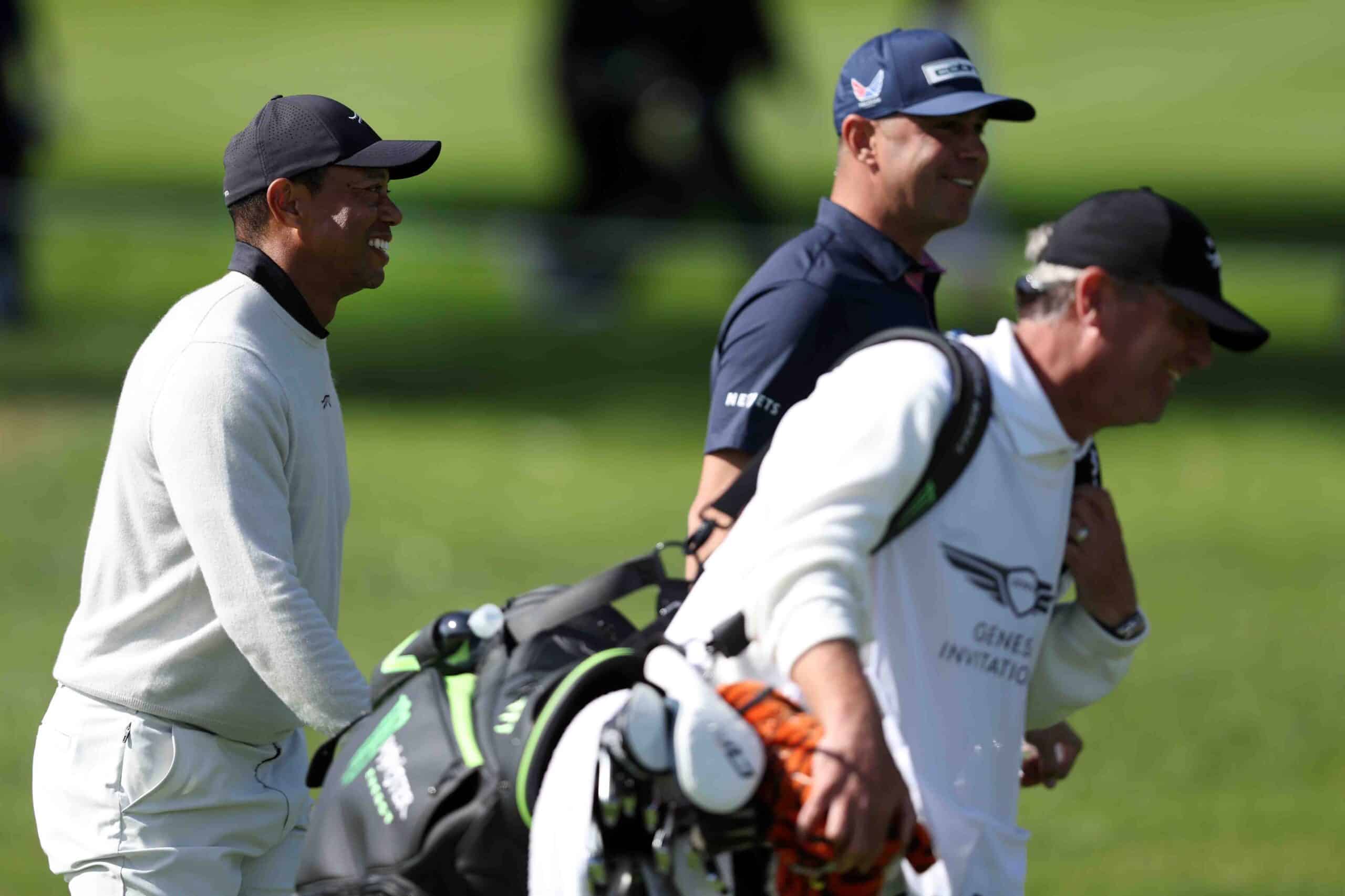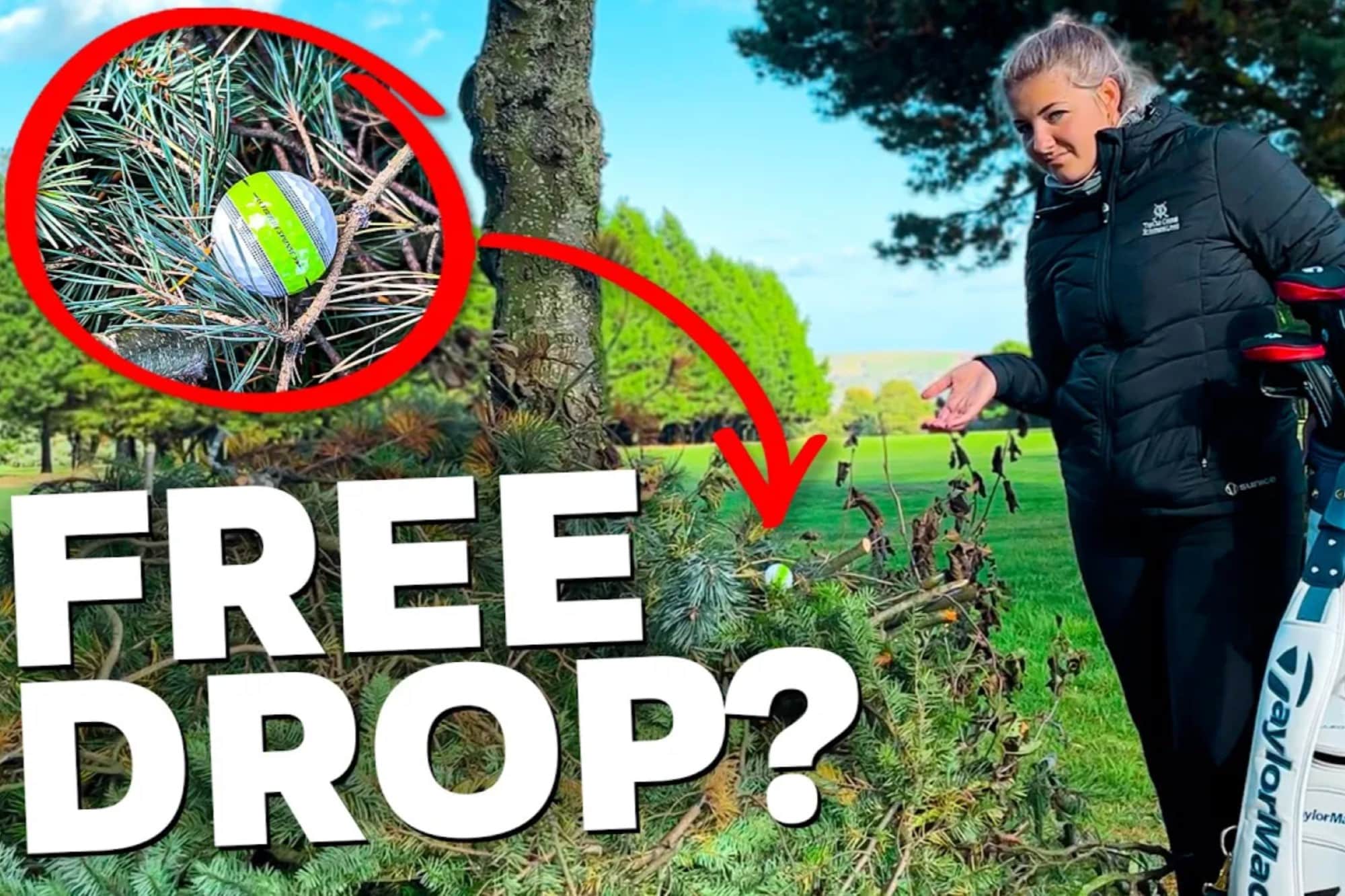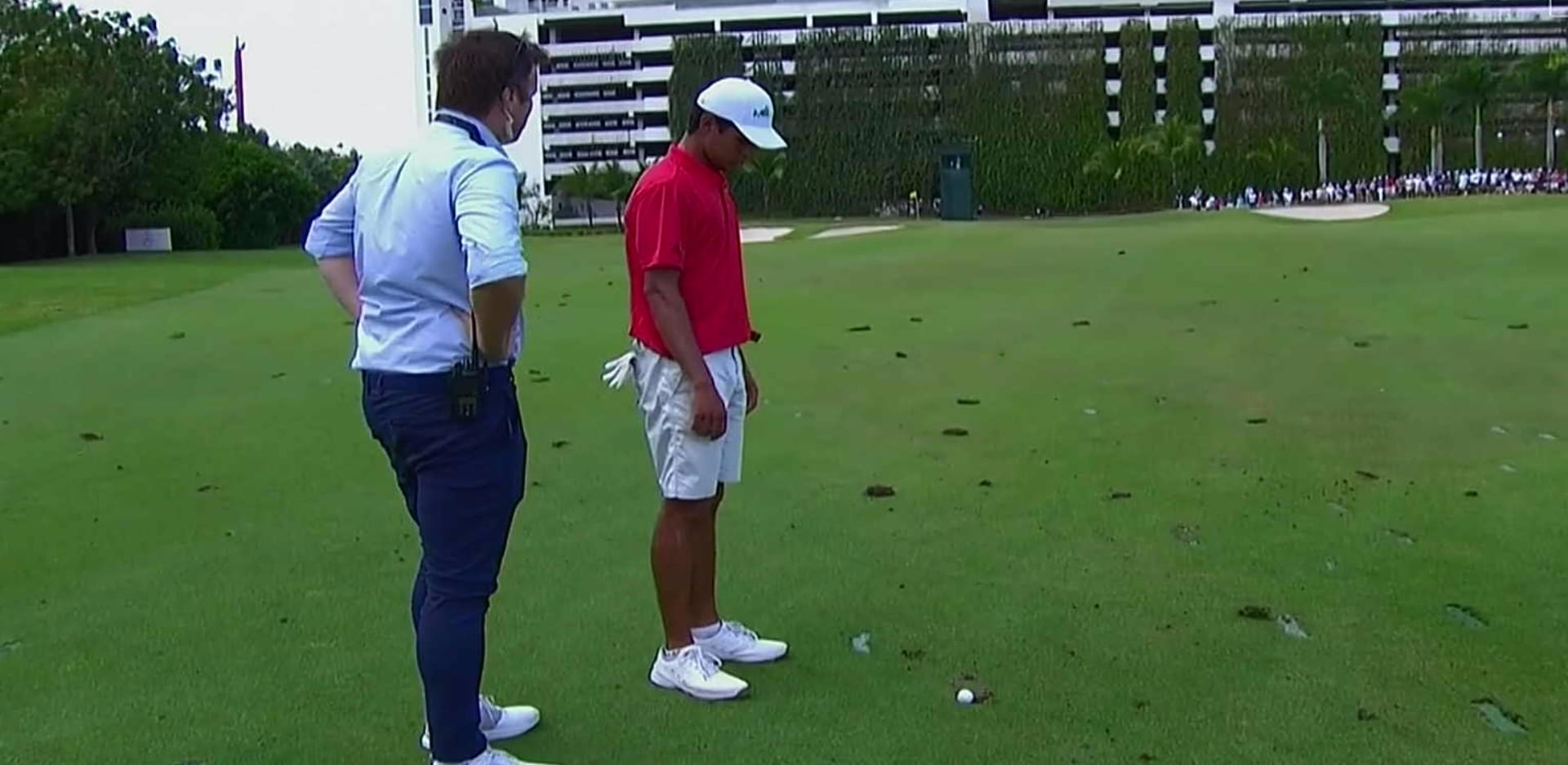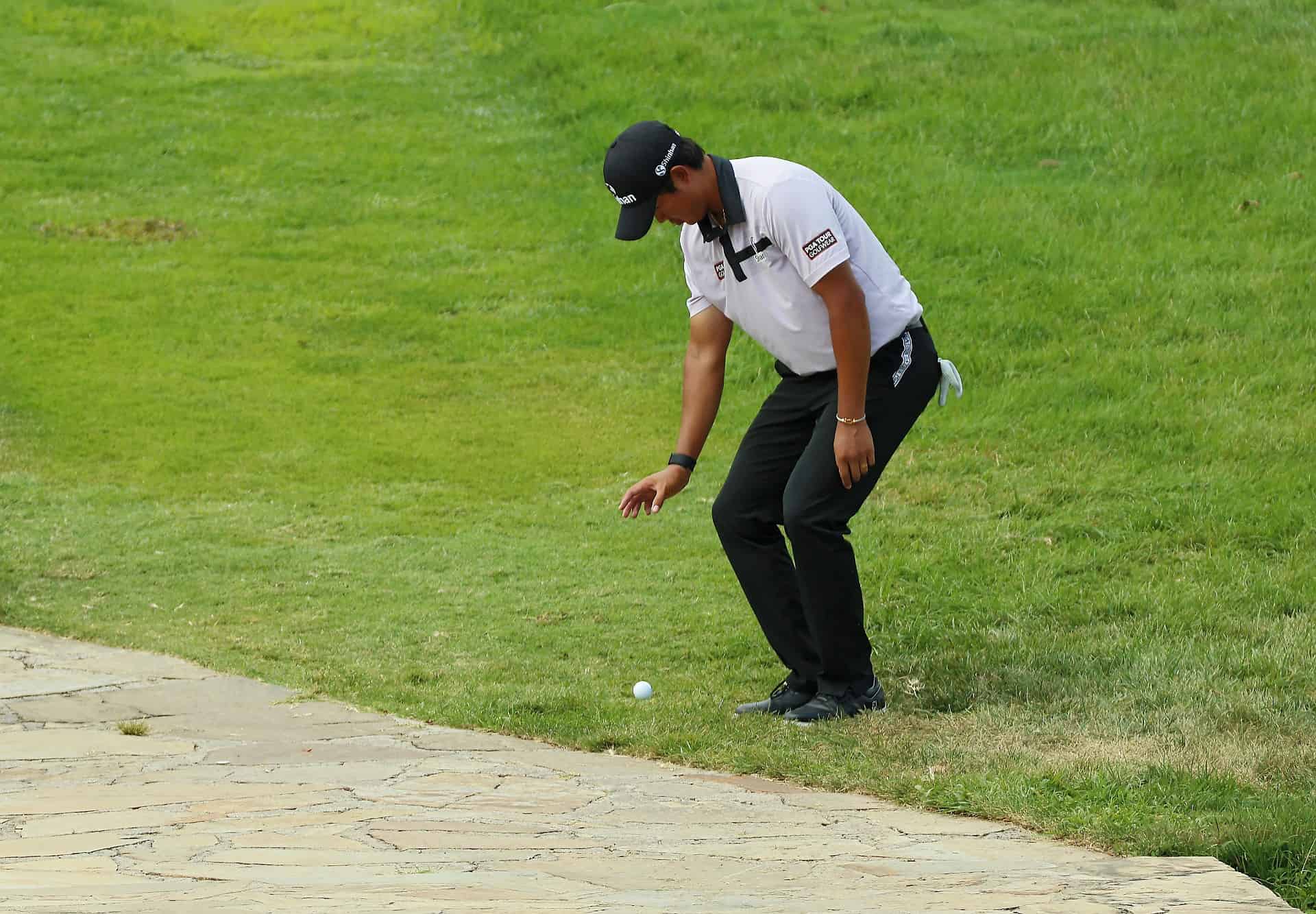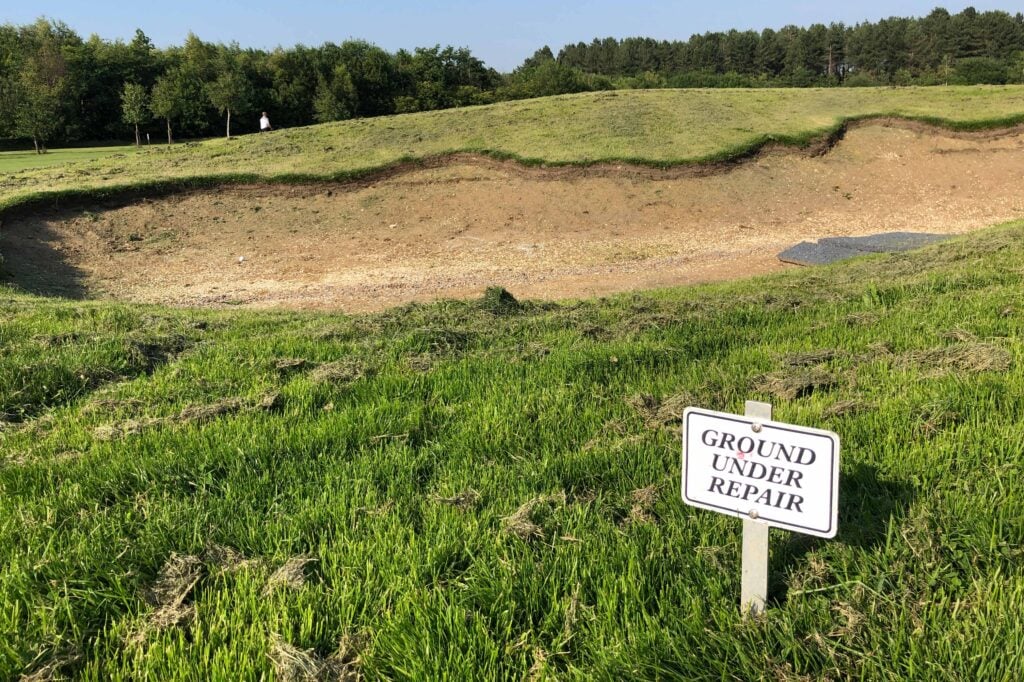
Where do I drop if a bunker is ground under repair?
Your ball has found a bunker that is ground under repair. What now? Our Rules of Golf expert is here to help
Whether it’s winter work, or the weather has prompted your club committee to take action, sometimes your ball will land in a bunker that’s marked as ground under repair.
I’ve had lots of emails about this over the years. Where do you drop? Is it in the bunker, is it outside? What if there isn’t anywhere that isn’t closer to the hole? Point of entry, or nearest point of complete relief?
Let’s see if we can clear some of these questions up in one fell swoop as the diggers arrive, the bunkers keep flooding, and the weather drives us all to distraction.
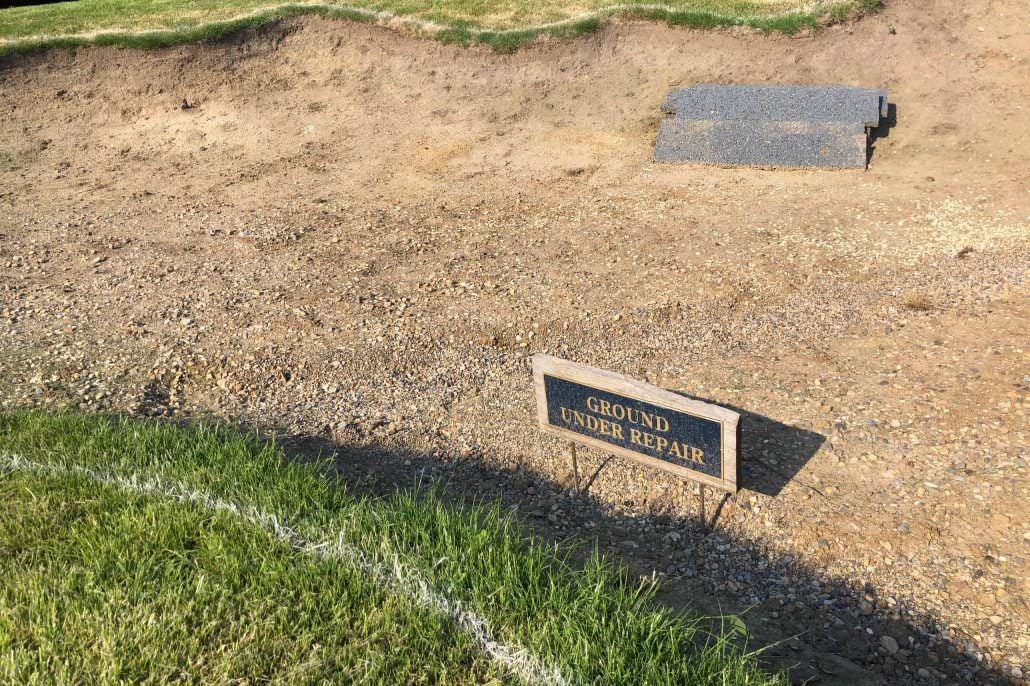
Bunker ground under repair rule: Here’s what to do
When is a bunker not a bunker? That’s right, when it is ground under repair. A bunker is normally classed as a specific area of the course – along with teeing areas, penalty areas, putting greens and the general area.
But when a committee defines a bunker as GUR, for instance when it is being repaired, it is treated as being part of the general area. As far as the Rules of Golf matter, it is no longer a bunker.
So don’t be tempted to look up bunkers in the big book. You want to concentrate solely on Rule 16.1b, which covers relief from abnormal course conditions in the general area.
Of course, in this instance, you get free relief but here’s the key thing. The reference point for establishing a relief area is the nearest point of complete relief in the general area.
Find that and it’s one-club length and no nearer the hole. Remember, it’s got to be a spot where there is complete relief from all interference by the abnormal course condition.
Don’t think taking free relief necessary entitles you to a glorious lie. You might not like where the nearest point of complete relief will take you.
This confuses a lot of golfers, who believe that free relief entitles them to a lovely lie. This is not true.
A clarification to Rule 16.1 says relief from an abnormal course condition can result in better or worse conditions.
“If a player receives better conditions affecting the stroke in taking relief under Rule 16.1, this is the player’s good fortune,” it reveals.
“There is nothing in Rule 16.1 that requires them to maintain identical conditions after relief is taken.”
This is one of the reasons I’d always advise scouting out your nearest point of complete relief before you pick your ball up.
Because remember, you can play it as lies from ground under repair if you want – unless the area has been designated a No Play Zone.
Have a question for our Rules of Golf expert?
Despite the changes to the Rules of Golf at the beginning of 2019, there are still some that leave us scratching our heads. I’ll try to help by featuring the best of your queries in this column.
What do you make of this ground under repair rule? How have you handled it? Let me know by leaving me a comment on X.
Steve Carroll

A journalist for 25 years, Steve has been immersed in club golf for almost as long. A former club captain, he has passed the Level 3 Rules of Golf exam with distinction having attended the R&A's prestigious Tournament Administrators and Referees Seminar.
Steve has officiated at a host of high-profile tournaments, including Open Regional Qualifying, PGA Fourball Championship, English Men's Senior Amateur, and the North of England Amateur Championship. In 2023, he made his international debut as part of the team that refereed England vs Switzerland U16 girls.
A part of NCG's Top 100s panel, Steve has a particular love of links golf and is frantically trying to restore his single-figure handicap. He currently floats at around 11.
Steve plays at Close House, in Newcastle, and York GC, where he is a member of the club's matches and competitions committee and referees the annual 36-hole scratch York Rose Bowl.
Having studied history at Newcastle University, he became a journalist having passed his NTCJ exams at Darlington College of Technology.
What's in Steve's bag: TaylorMade Stealth 2 driver, 3-wood, and hybrids; TaylorMade Stealth 2 irons; TaylorMade Hi-Toe, Ping ChipR, Sik Putter.


